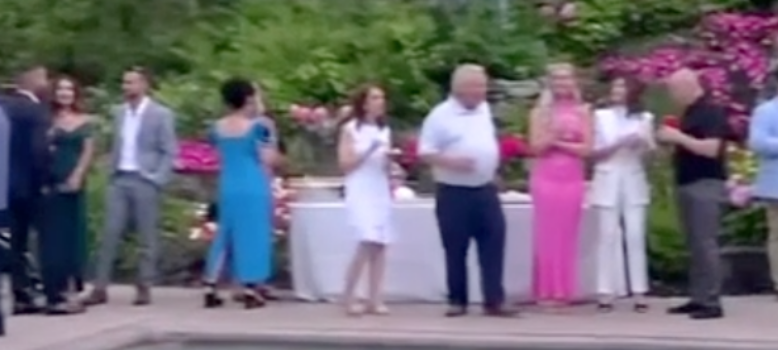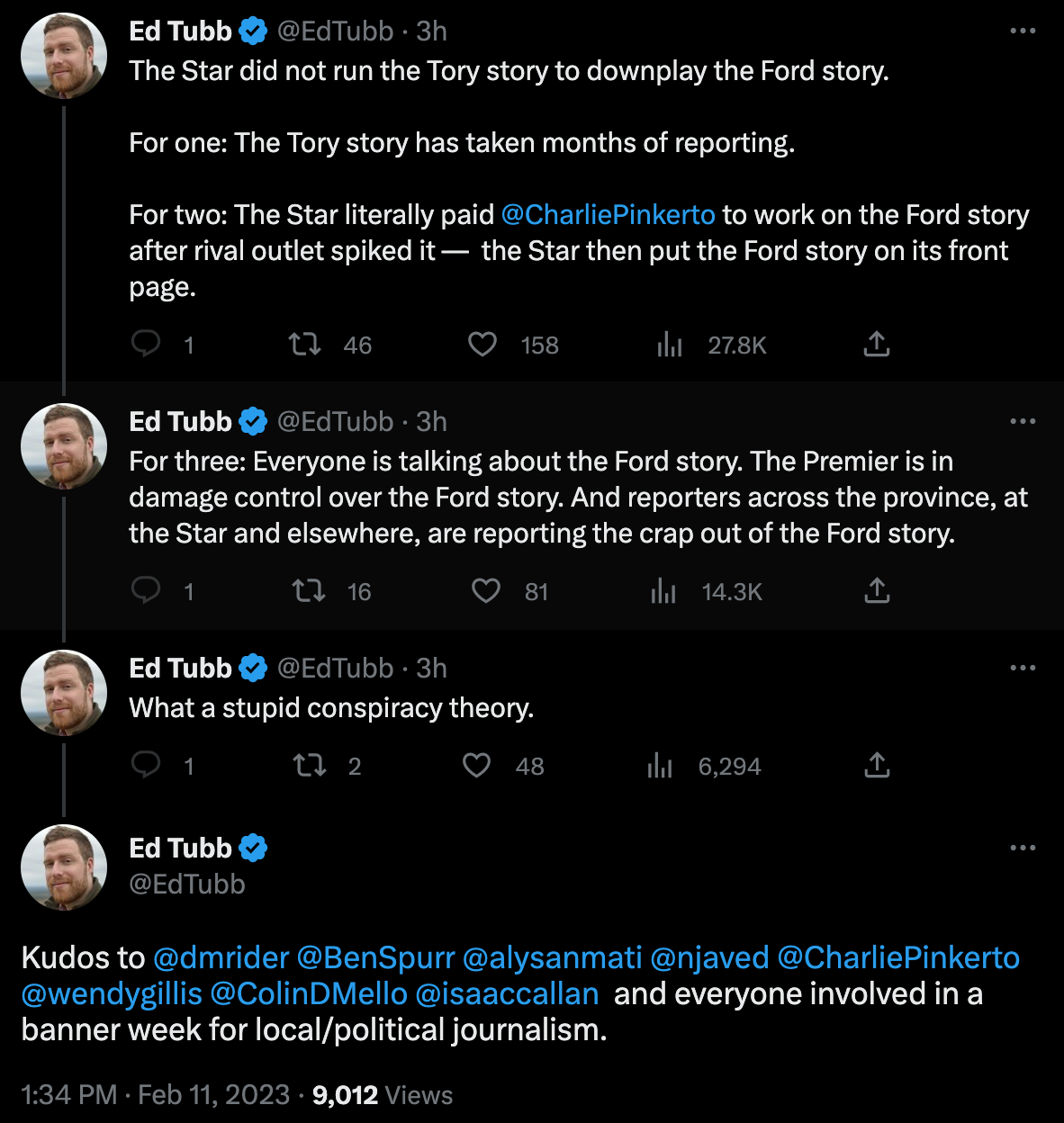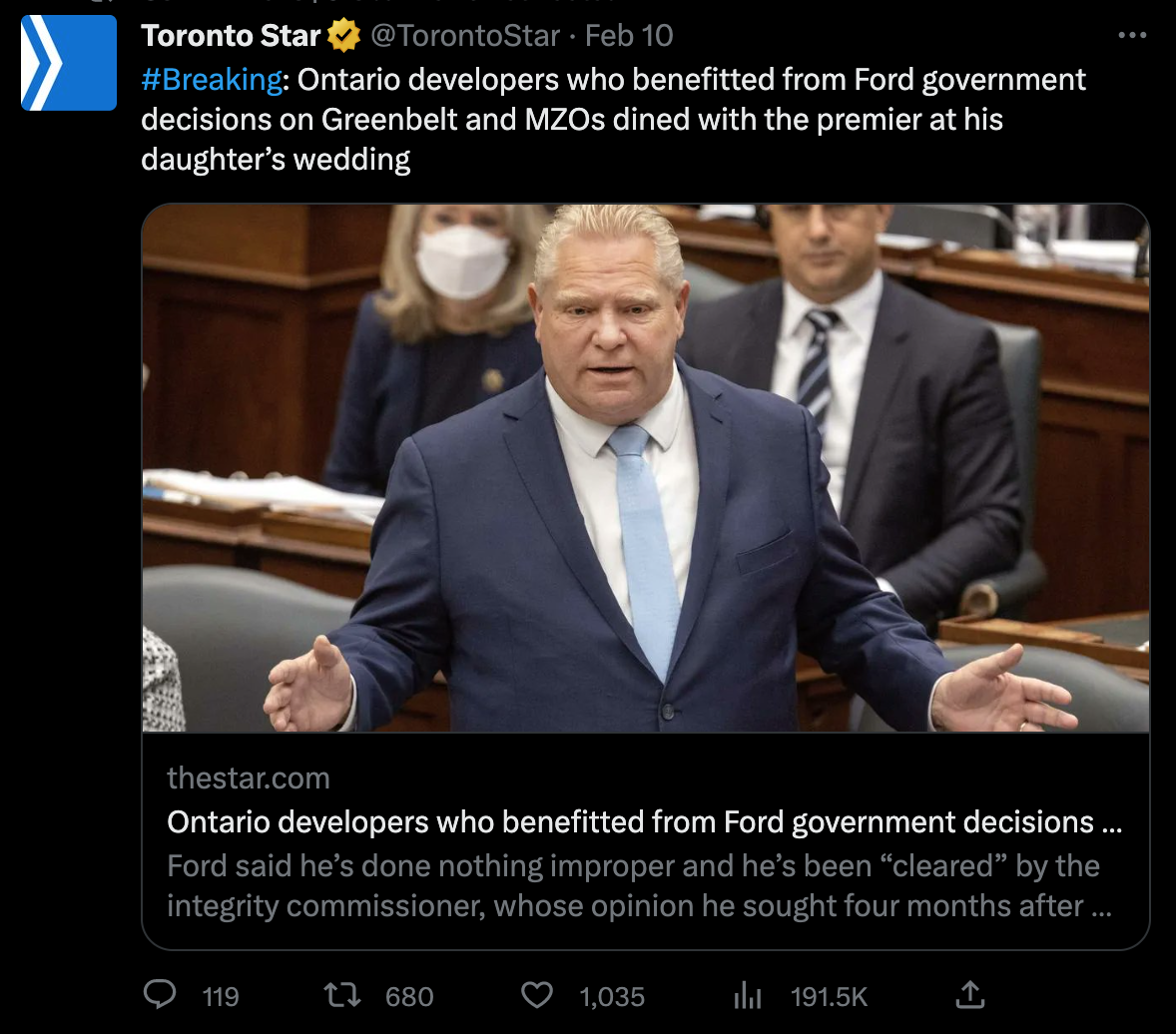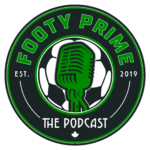
Video: Doug Ford’s Backyard Stag and Doe With A Few Developer Friends Looked Lovely, And Totally Problematic

Quack, quack, bang!
By Mark Bourrie, Lawyer, Best Selling Author.
A premier has a responsibility to the people and the government not to destroy the credibility of the political system by appearing to be auctioning favors. Unlike a private citizen, a premier can’t skate up to the very edge of the legal blue line and claim he’s not offside.
When Doug Ford’s lovely and talented daughter held a Stag and Doe to raise money for her wedding (the bride’s father presumably needing both a hand up and a hand out), she invited some rather interesting and well-heeled people to this event. Doug Ford claims events at his home are always open to everyone (a claim I intend to test at the first opportunity once I have the address), and some family-friendly property developers just showed up.
This might resemble a special event in rural Sicily to some of us. I moved from Etobicoke after finishing Grade 1, so I can’t attest to the local culture. But when my daughter got married, all the events were invite-only. We didn’t throw the doors open to everyone who might want to do business with our family and slap money into my daughter’s hands.
The media environment is what it is, and most of the Queen’s Park press gallery members being as lame as they are, it took more than half a year for the story to surface. Queen’s Park Briefing, an online publication that was, at the time, owned by the Toronto Star’s parent company, appears to have received the video of this classy event in the past couple of months.
Crier also recently received the video, and we hoped to break the story. Next time, we’ll work faster;)
At some point, Queen’s Park Briefing’s journalists asked Ford for comment, which was the right thing for them to do.
Ford did pre-emptive damage control. It would be interesting to know if he came up with this himself or hired a reputation management/ratfucking company to steer him.
Ford went to Ontario’s Integrity Commissioner, who, Ford says, cleared him 1000%. This must be quite the soft-touch job. In time for the weekend papers, the commissioner made clear that they only looked at material given to them by the person under investigation. I await the day when the Canada Revenue Agency adopts the same rules.

Also, keep in mind the provincially-mandated municipal Integrity Commissioners, some of whom have come out with outrageous decisions against elected members of council. Many municipal representatives have been fined, gagged, and effectively driven from office by biased and inept integrity commissioners, but that’s a story for another day.
More info: Disclosure of Wrongdoing by Ontario public servants
[email protected]
416-314-1581 or toll free at 1-866-884-4470
Public Sector Ethics – Inquiries for the Integrity Commissioner as Ethics Executive
[email protected]
416-314-8983 or toll free at 1-866-956-1191 #ONpoli pic.twitter.com/3SQEkQtcQ7— @[email protected] (@HeatherMoAndCo) February 11, 2023
Quack, quack, bang!
It doesn’t take a Ph.D. and the endurance of three years of law school to spot the elements of a duck. The stag and doe, all its trashy elements aside, looks bad to me, and it looks bad to most of you, not because we are stupid or uneducated on where the edge of the blue line is, but because we believe what we see.
There’s a whole box of quackers here.
Lawyers for Queen’s Park Briefing examined the stories that were written by the reporters and handled by their editors. They can’t tell us what they saw or the advice they gave, but I can give some ideas of what they were looking for.
First, there’s libel. With Ford himself, there’s considerable protection for journalists. He is an elected official. Comment about him, even some insinuations, are well-protected by libel and SLAPP law. If the journalists were fair to Ford, getting his side of the story, they had the protection of the “responsible communication” rule. This protects journalists when writing about matters of public interest.
Here’s my attempt last Wednesday to question Premier Doug Ford about the stag and doe as he left Queen’s Park.
Ford said nothing in response. https://t.co/CkJTIDNu4f pic.twitter.com/4gWunuDJqK
— Charlie Pinkerton (@CharliePinkerto) February 9, 2023
It gets a little dicier when we get to the matter of describing the developers and their actions. These are not public officials. Their actions may or may not be a matter of public interest. The facts and the law must be picked apart to decide that. They’re in a sensitive business, and they have lots of money. They, not the premier, would be most likely to sue.
They have the protection of the tort of false light, something that’s been building in the United States and is seeping into Canada. That’s a tort where the journalists (or other writers, since defamation can happen in things like emails) construct a negative reputation using selected facts. This gets around the defense of truth. In effect, it’s the tort of cherry-picking. And if everyone who has endured that kind of assault went to court over it, every lawyer’s kids would have straight teeth and a swimming pool in their backyard.
This story was built on a video. Filming at a Stag and Doe is not illegal, and it’s unlikely the people at this surely-fantastic party had to sign a non-disclosure agreement or surrender their cell phones at the door. This was a public event – maybe not for all the public, but public enough – and there could be no expectation of privacy.
Doug: Thanks for the cheques, folks. https://t.co/1VGaNmfVk4
— Adithya | ఆదిత్య R (@AdithyaIzOn) February 10, 2023
(Note to the Premier: Next time there’s a ring-kissing, do it in Quebec, where you can sue people who publish event pictures without your permission.)
Unless Queen’s Park Briefing tells us, we’ll never know what advice they got from their lawyers. But lawyers can only advise. It’s up to the publisher to decide whether to go ahead with the story.
At the same time, there were other wolves in the woods. The partnership between the two principal owners of the Star had broken down, and the company was being divided. Paul Rivett got Queen’s Park Briefing and its parent company, Ottawa-based iPolitics. Jordan Bitove got the Star and the more prominent papers.
It didn’t help that Queen’s Park Briefing had just lost its libel insurance. It was under the wing of The Star’s insurance policy. This means Queen’s Park Briefing would pay its own legal bills. I’ve always told publisher clients that libel insurance is necessary and scrimping on it is a false economy. Even the most banal publication risks getting sued. And whether they win or lose, litigation is expensive and full costs are rarely recoverable, even if the case is thrown out.
Laura Pennell is Queen’s Park Briefing’s publisher. She said the Stag and Doe story didn’t meet the “publication’s standards,” though once the duck hit the fan, it seemed to meet the standards of many other news organizations. Colin D’Mello of Global News got the story, and the rest of the pack followed, though most of the air time went to a sorrowful Ford bemoaning the state of journalism while some unfortunate, uncomfortable Mohawk props looked on.
The Premier also stressed this was a private event involving his daughters wedding – suggesting the story was about her wedding.
It wasn’t.
It was about an event that conservatives felt was a “pay for play” party that they felt deeply uncomfortable with. #onpoli
— Colin D'Mello | Global News (@ColinDMello) February 10, 2023
#Breaking: Ontario developers who benefitted from Ford government decisions on Greenbelt and MZOs dined with the premier at his daughter’s wedding https://t.co/TvnhdcRynX
— Toronto Star (@TorontoStar) February 10, 2023

Editors Charlie Pinkerton and Jessica Smith Cross took bullets for media independence by resigning. They blamed Rivett for the mess.
“I can’t work for an organization where the owners interfere with the journalism,” said Smith Cross, who was obviously new to the business and hadn’t read my new book Big Men Fear Me, about Globe and Mail founder George McCullagh. Nor, I suppose, is she old enough to have worked at the Star and receive “BH (Beland Honderich) Wants” memos. Or at the Sun, where we got similar notes from co-owners Peter Worthington and Doug Creighton.
No matter. I’m sure both editors will find steady work somewhere in the English-speaking world where publishers let reporters and editors have free rein with millions of dollars worth of equity, at significant legal risk to the owners. Because, hey, that’s how journalism works.
Two of the Queen’s Park Briefing reporters who squawked about all this were, just coincidentally, laid off last week. Because Queen’s Park Briefing was over-staffed, with journalistic power to burn, cut the fat, not the muscle, that kind of thing.
All in all, this is a great case study of how the Canadian media is fucked. A paper-thin organization without libel insurance and a spine spikes a story certainly in the public interest. The spikers still have jobs. Two brave, if naïve editors and a couple of angry reporters are taken out behind the barn by someone with a shovel and a 12-guage. A premier claims a clapped-out duck is a swan and has the paperwork to prove it.
And, drip, drip, drip, democracy slips down the sewer.

Mark Bourrie is an Ottawa-based lawyer and author. Between 1978 and 2017, he wrote hundreds of articles for all of Toronto’s daily newspapers at one time or another.








